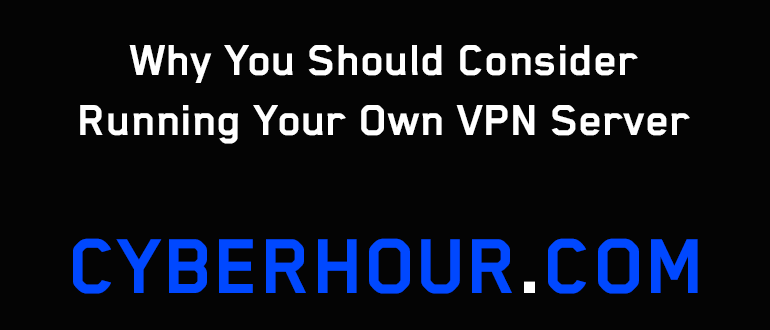Why You Should Consider Running Your Own VPN Server
You’ve likely seen the ads: "Protect your data with one click!" Commercial VPNs have exploded in popularity, with over 1.5 billion users worldwide in 2023 (Statista). Yet, as headlines reveal breaches and shady data practices, a quiet revolution is brewing. Tech-savvy users are ditching third-party services to build their own VPNs. But does DIY really offer better security—or is it just digital paranoia? Let’s dig in.
1. The Double-Edged Sword of Modern VPNs
VPNs aren’t just tools; they’re a mindset. Imagine your internet traffic as a postcard: anyone can read it. A VPN seals that postcard in a titanium box, accessible only to you and your recipient. By routing traffic through encrypted tunnels, VPNs:
- Mask your IP address
- Encrypt data from hackers on public Wi-Fi
- Bypass geographic content restrictions
But here’s the rub: you’re trusting a company with your digital life. In 2022, a leaked audit of a top VPN provider revealed they’d stored user IP addresses for months—despite a “strict no-logs policy.” Suddenly, that “titanium box” feels more like a shared safe.
2. The Dirty Secret of "No-Logs" Policies
“If you’re not paying, you’re the product.” This adage haunts free VPNs, but paid services aren’t saints. Key concerns:
- Jurisdiction Matters: Over 60% of VPNs are based in Five/Nine/Fourteen Eyes countries (PrivacyTerns, 2023), where governments can demand user data.
- Closed-Source Code: Can’t audit it? You’re taking their word on security.
- Bait-and-Switch Tactics: In 2021, a popular VPN sold to new owners who quietly altered logging policies.
“No-logs claims are often marketing theater,” says cybersecurity expert Dr. Emily Tran. “Unless independently audited—and few are—assume some data is being stored.”
3. DIY VPNs: Total Control or Total Hassle?
Enter the self-hosted VPN: your rules, your hardware. Picture building a private highway instead of riding a crowded bus.
The Upside:
- Zero Third-Party Trust: Your data never touches a corporate server.
- Custom Security: Choose encryption protocols (WireGuard vs. OpenVPN) and kill switches.
- Cost Efficiency: As low as $5/month for a Virtual Private Server (VPS).
The Trade-Offs:
- No instant country-hopping: Your VPN’s location is fixed to your VPS.
- Maintenance required: Updates, security patches, and troubleshooting are on you.
4. Step-by-Step: Building Your VPN (Without a CS Degree)
Ready to try? Here’s a simplified blueprint:
- Pick Your Battlefield (VPS):
- Avoid surveillance-heavy regions: Switzerland or Iceland > U.S. or U.K.
- Check Terms of Service: Some providers (e.g., DigitalOcean) explicitly allow VPNs.
- Choose Your Weapon (Software):
- WireGuard: Lightning-fast, modern encryption (ideal for streaming).
- OpenVPN: Battle-tested, highly configurable.
- Deploy:
- Use one-click installers like Algo VPN or Streisand for automated setup.
- Crucial Step: Enable TLS encryption and two-factor authentication.
- Test Rigorously:
- Use DNSLeakTest.com to confirm no IP leaks.
- Run penetration tests with tools like Nmap.
Pro Tip: “Always assume your VPS provider could access data,” advises ethical hacker Marcus Lee. “Use additional encryption like HTTPS everywhere.”
5. Beyond Basics: Fortifying Your DIY VPN
Want to level up? Try these advanced tactics:
- Obfuscation: Mask VPN traffic as regular HTTPS to bypass firewalls (great for restrictive regions).
- Multi-Hop Routing: Chain multiple VPS servers for layered encryption (but expect speed drops).
- Ad-Blocking DNS: Integrate Pi-hole to nuke ads and trackers at the network level.
6. The Future of Privacy: What’s Next?
As quantum computing looms, today’s encryption could crumble. The 2023 NSA memo urged agencies to adopt “quantum-resistant algorithms”—a hint for civilians too. Future-proof your VPN by:
- Choosing software with agile update policies
- Monitoring NIST’s post-quantum cryptography standards
Conclusion: Is the Juice Worth the Squeeze?
Building a VPN isn’t for everyone. But in an era where 40% of VPN apps have critical vulnerabilities (CSIRO, 2023), taking control might be the smartest click you never make.
Final Thoughts:
- For Privacy Purists: DIY offers unmatched control.
- For Casual Users: Stick to audited, no-logs VPNs like ProtonVPN or Mullvad.
Food for Thought: If a VPN company can’t show you their code or audit reports… what are they hiding?
Checklist: Your VPN Self-Host Starter Kit
- ✅ Non-Five Eyes VPS provider
- ✅ WireGuard/OpenVPN installed
- ✅ DNS leak protection enabled
- ✅ Weekly security patches scheduled
- ✅ Backup server (for when things go sideways)
Your Move: Will you keep renting digital security—or start owning it?


